News
-
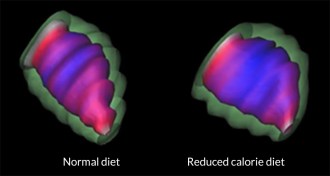 Health & Medicine
Health & MedicinePoor diet in pregnancy, poor heart health for infants
Moms who eat too little during pregnancy could have babies with heart risks.
By Laura Beil -
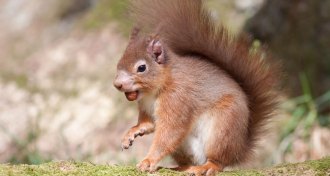 Life
LifeBritish red squirrels serve as leprosy reservoir
Red squirrels in the British Isles can harbor the bacteria that cause leprosy.
-
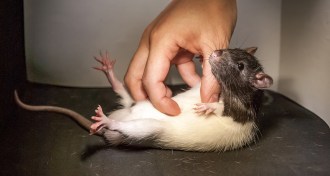 Neuroscience
NeuroscienceGiggling rats help reveal how brain creates joy
Rats relish a good tickle, which activates nerve cells in a part of the brain that detects touch.
-
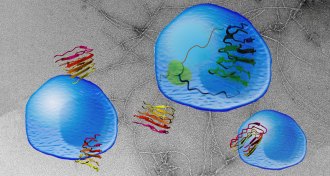 Life
LifeProtein mobs kill cells that most need those proteins to survive
A protein engineered to aggregate gives clues about how clumpy proteins kill brain cells.
-
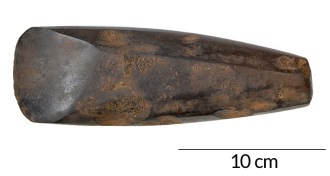 Archaeology
ArchaeologyStone adze points to ancient burial rituals in Ireland
A polished stone tool discovered in Ireland’s earliest known gravesite helps scientists revive an ancient burial ceremony.
By Bruce Bower -
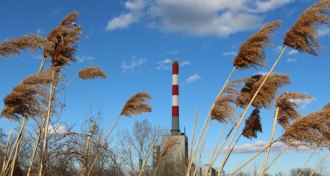 Climate
ClimateCO2-loving plants can counter human emissions
Plants temporarily halted the acceleration of rising carbon dioxide levels in the atmosphere, new research suggests.
-
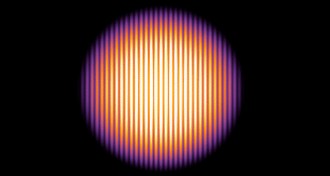 Physics
PhysicsSupersolids produced in exotic state of quantum matter
Bose-Einstein condensates display properties of liquid and solid simultaneously.
-
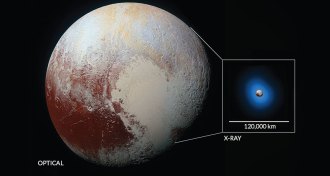 Planetary Science
Planetary ScienceX-ray mystery shrouds Pluto
Chandra telescope detects seven X-ray photons coming from Pluto, suggesting that the solar wind runs into a tail of gas streaming from the dwarf planet.
-
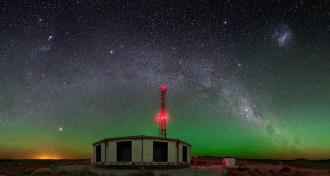 Particle Physics
Particle PhysicsMuon surplus leaves physicists searching for answers
A glut of muons shows up in particle showers in the atmosphere.
-
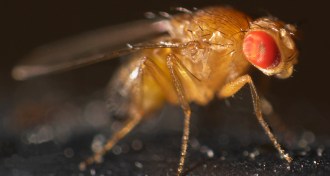 Neuroscience
NeuroscienceShape-shifting molecule aids memory in fruit flies
A prionlike protein may store long-term memories in fruit flies, a new study suggests.
-
 Genetics
GeneticsCancer mutation patterns differ in smokers, nonsmokers
The DNA of smokers shows more damage than the DNA of nonsmokers who have the same kind of cancer.
-
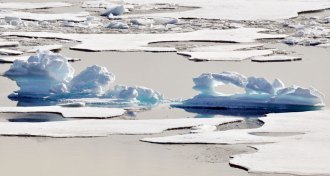 Climate
ClimateHuman CO2 emissions put Arctic on track to be ice-free by 2050
Sea ice is shrinking by about three square meters for each metric ton of carbon dioxide emitted, new research suggests.